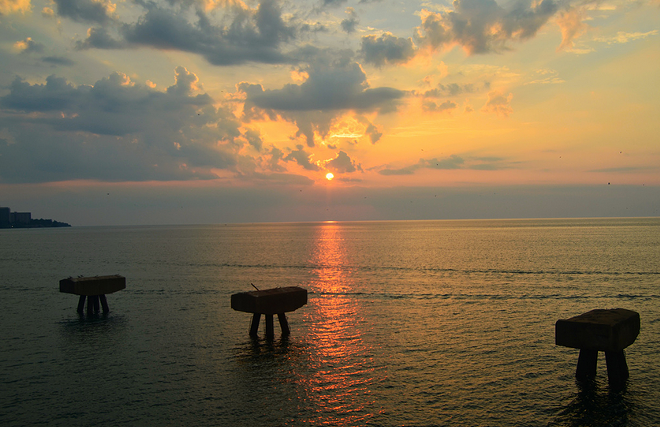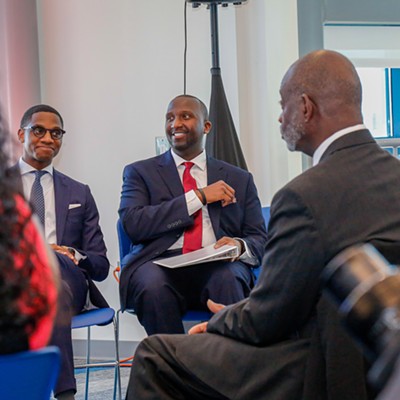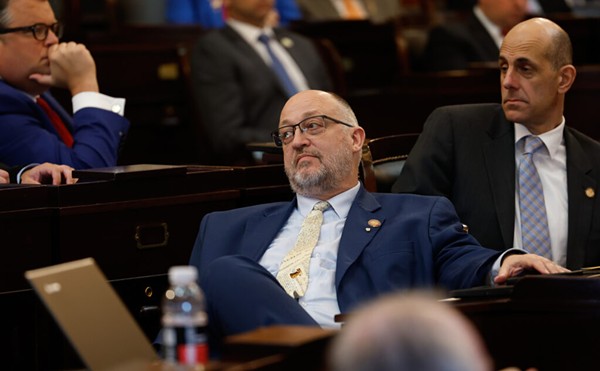Future of Offshore Wind in Lake Erie in Flux as Icebreaker Project Shelved
"We were delayed years by lengthy permitting processes as well as litigations by opponents"
By Farah Siddiqi, Ohio News Connection on Fri, Dec 22, 2023 at 7:59 am
[
{
"name": "Ad - NativeInline - Injected",
"component": "38482495",
"insertPoint": "3",
"requiredCountToDisplay": "5"
},{
"name": "Real 1 Player (r2) - Inline",
"component": "38482494",
"insertPoint": "2/3",
"requiredCountToDisplay": "9"
}
]
Offshore wind development in the Great Lakes region has had a turbulent history and faced many challenges.
Initially considered a promising location for offshore wind because of consistent winds and potential economic benefits, the Great Lakes have faced numerous setbacks. Recently, the Lake Erie Energy Development Corporation made the decision to indefinitely halt the Icebreaker project off the coast of Cleveland.
William Friedman, president and CEO of the Cleveland-Cuyahoga County Port Authority and board member of the Lake Erie Energy Development Corporation, said he is not optimistic.
"(The) Department of Energy is in the process of terminating the grant and it's technically a mutual termination between LEEDCo and the Department of Energy," Friedman explained. "LEEDCo is not able to complete the rest of the milestones in compliance with the grant, so there really is no choice here."
There has been little progress in Great Lakes states enacting policies to help get offshore wind projects started. Project proposals cropped up across the region in the early 2010s, but by the end of the decade all but Icebreaker were gone. Across the lakes in Canada, Ontario imposed a moratorium on offshore wind. Officials there cited a lack of scientific research on the turbines' environmental effects.
Friedman pointed out Icebreaker Wind was intended to be a demonstration project, with six wind turbines anchored eight miles off the coast of Cleveland. They were projected to generate more than 20 megawatts of electricity, about 130 times less than the capacity of Ohio's largest coal plant. Friedman noted inflation and increasing costs are the main reasons for stopping development.
"We were delayed years by lengthy permitting processes as well as litigations by opponents," Friedman stressed. "We also had a funding gap which we've never been able to close. Unfortunately, that's caused us to put the project on hold."
Opponents of Icebreaker include groups concerned about the project's effects on migrating bird species and ecosystems, as well as local residents who did not want to view the turbines from the shore. Friedman encouraged Ohioans interested in energy alternatives to share their opinions with elected leaders.
This story was produced with original reporting from Nicole Pollack for Inside Climate News .
Initially considered a promising location for offshore wind because of consistent winds and potential economic benefits, the Great Lakes have faced numerous setbacks. Recently, the Lake Erie Energy Development Corporation made the decision to indefinitely halt the Icebreaker project off the coast of Cleveland.
William Friedman, president and CEO of the Cleveland-Cuyahoga County Port Authority and board member of the Lake Erie Energy Development Corporation, said he is not optimistic.
"(The) Department of Energy is in the process of terminating the grant and it's technically a mutual termination between LEEDCo and the Department of Energy," Friedman explained. "LEEDCo is not able to complete the rest of the milestones in compliance with the grant, so there really is no choice here."
There has been little progress in Great Lakes states enacting policies to help get offshore wind projects started. Project proposals cropped up across the region in the early 2010s, but by the end of the decade all but Icebreaker were gone. Across the lakes in Canada, Ontario imposed a moratorium on offshore wind. Officials there cited a lack of scientific research on the turbines' environmental effects.
Friedman pointed out Icebreaker Wind was intended to be a demonstration project, with six wind turbines anchored eight miles off the coast of Cleveland. They were projected to generate more than 20 megawatts of electricity, about 130 times less than the capacity of Ohio's largest coal plant. Friedman noted inflation and increasing costs are the main reasons for stopping development.
"We were delayed years by lengthy permitting processes as well as litigations by opponents," Friedman stressed. "We also had a funding gap which we've never been able to close. Unfortunately, that's caused us to put the project on hold."
Opponents of Icebreaker include groups concerned about the project's effects on migrating bird species and ecosystems, as well as local residents who did not want to view the turbines from the shore. Friedman encouraged Ohioans interested in energy alternatives to share their opinions with elected leaders.
This story was produced with original reporting from Nicole Pollack for Inside Climate News .
Tags:
SCENE Supporters make it possible to tell the Cleveland stories you won’t find elsewhere.
Become a supporter today.
Scroll to read more Cleveland News articles
Newsletters
Join Cleveland Scene Newsletters
Subscribe now to get the latest news delivered right to your inbox.













